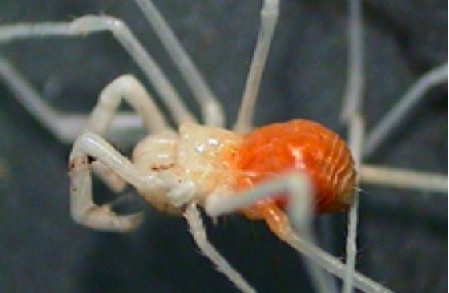Georgetown, TX – Late Thursday, the U.S. District Court for the Western District of Texas ruled against the U.S. Fish and Wildlife Service (Service) directing them to reconsider a petition to delist the Bone Cave harvestman, a tiny cave bug that resides in scores of caves in Williamson and Travis Counties. (American Stewards of Liberty et. al. vs. Department of Interior et. al, Case 1:15-cv-01174-LY)
The Court found that the Service acted arbitrarily and capriciously, and not in accordance with the law when they denied a petition to delist the species filed by American Stewards of Liberty (Stewards) and several landowners.
The order points out that the Service had unfairly raised the bar by requiring petitioners to provide population trend evidence that is not possible to obtain, in light of the requirement under the Endangered Species Act and pertinent regulations to utilize the best available scientific information.
The District Judge stated: “By requiring evidence that the Service admits is either infeasible to collect or totally unavailable, the Service makes it all but impossible for the Stewards to disprove the essential assumption of the 1988 listing that the harvestman would decline as the population increases because of dangers to its habitat and thus, makes the case for delisting the harvestman impossible. Rather than considering whether the information presented in the petition may indicate that delisting is warranted, the Service requires conclusive evidence that the overall population of the harvestman did not decline as human population and development increased.”
Petitioners presented evidence that the known location of sites for the harvestman had substantially increased from five or six in 1988, to 172 in 2014, all while rapid growth continues in the two counties in which the species is found. The court noted, “This amounts to an increase at a rate of 7.59 new sites discovered per year and a total population increase of 3,340 percent.” Since Stewards filed the lawsuit, the number of known locations has continued to grow and it now exceeds 200.
“We are very pleased with the courts ruling,” commented Margaret Byfield, executive director of American Stewards of Liberty. “It sends a strong message that the rule of law must be equitably applied, and we are hopeful it will open the door for more delisting petitions to be fairly considered.”
Since the Service listed the harvestman, the Service has imposed severe restrictions on public and private development projects in the vicinity of caves occupied by the harvestman. Under the Williamson County’s regional habitat conservation plan, landowners must set aside at least 8.5 acres around an occupied cave or pay up to $400,000 to develop within 50 feet of the cave entrance to receive take authorization through that plan.
American Stewards originally filed its’ delisting petition in 2014, which was denied by the Service. Stewards challenged this ruling and prevailed when it was discovered that the Service had failed to consider 63 documents that supported the petition. After a second review, the Service once again denied the petition, forcing the petitioners back into court. The recent ruling requires the Service to take a third look, “consistent with” the court’s opinion.
“The Court’s Order will require the agency to make its determination based on the best available science, as the law requires,” commented Paul Weiland of Nossaman LLP, attorney for the plaintiffs. “The listing of species not in need of protection, like the harvestman, stymies economic development thereby harming communities and reduces the resources available to protect those species truly in need of protection.”
The Court further stated: “…the Service committed a clear error in judgment and acted arbitrarily, capriciously, and not in accordance with law when it called for more evidence than the law requires. The court will vacate the 2017 finding and remand the finding to the Service for further consideration of the Steward’s petition based on available population information, not population information the Service admits is impossible to attain.”
Landowner Charles Shell, one of the petitioners in the case, commented on how the delisting process is unfairly weighted against the landowner. “While we are pleased with the Court’s finding that the agency acted arbitrary and capricious, the process does not penalize the agency, but rather gives it a third chance to consider our petition filed in 2014. We have already twice forced the agency to go back to the drawing board to act within the law. Hopefully we will not need to file yet another lawsuit to receive justice.”
In accordance with the Court’s ruling, the Service must make a new 90-day finding on American Steward’s petition to delist the harvestman and must base that decision on the best available science, rather than relying on the absence of data that may not be attainable.


